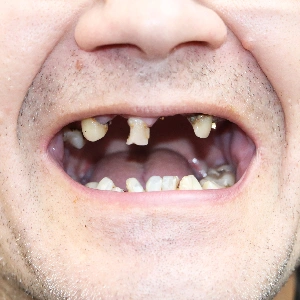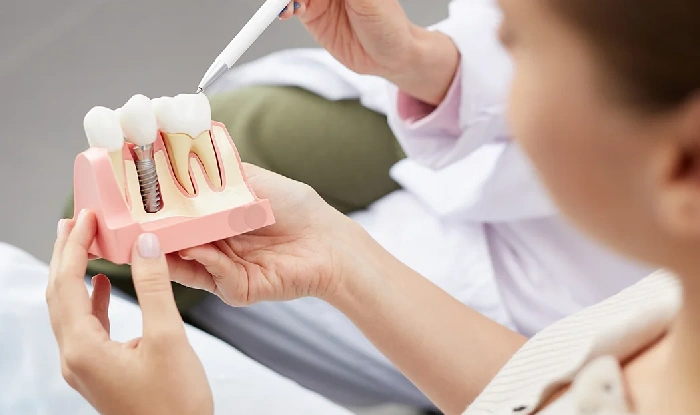Dental implants have transformed modern dentistry by offering a permanent, natural-looking solution to replace missing teeth. However, patients often raise one concern: Do dental implants cause bone loss? This is an important question, especially considering the bone’s critical role in supporting oral structures. This article will investigate the relationship between dental implants and bone health to provide clarity and peace of mind.

Understanding the Basics: What Happens to Bone After Tooth Loss?
When a natural tooth is lost, the bone that supported it starts to deteriorate. This process is called bone resorption. Without the regular stimulation from chewing forces that a tooth root provides, the jawbone shrinks over time. This not only affects the aesthetics of your smile but can also lead to other dental and health complications, including:
- Facial sagging and premature aging
- Misalignment of remaining teeth
- Increased risk of further tooth loss
Dental implants specifically address this issue, but how do they interact with bone tissue? Let’s find out.
How Dental Implants Help Preserve Bone?
The answer to “Do dental implants cause bone loss?” is generally no—implants are often the best defense against it.
Osseointegration: The Key to Bone Health
Once placed, a dental implant fuses with the jawbone through a natural process called osseointegration. This means the implant’s titanium post integrates with the bone tissue, mimicking the function of a natural tooth root.
As a result, every time you chew, the implant stimulates the jawbone, preventing the bone loss that usually follows tooth extraction. Dental implants are the only tooth replacement option that actively helps preserve jawbone density.
Long-Term Stability
Studies have shown that patients with dental implants experience significantly less bone loss over time than those using dentures or bridges. Implants essentially halt bone resorption in the treated area.
Can Dental Implants Cause Bone Loss in Certain Cases?
While implants generally prevent bone loss, there are scenarios where bone loss around implants may occur. Understanding these risks can help ensure proper care and implant success.
1. Peri-implantitis
Peri-implantitis is an inflammatory condition affecting the tissues surrounding a dental implant. It is often caused by poor oral hygiene and can lead to bone loss around the implant site if left untreated.
Prevention Tip
- Maintain excellent oral hygiene
- Attend regular dental check-ups and cleanings
2. Insufficient Bone at Placement
If an implant is placed where there is already inadequate bone (often due to prolonged tooth loss without replacement), there may be insufficient integration, risking implant failure and additional bone loss.
Solution
Bone grafting may be recommended before implant placement to ensure adequate support.
3. Overloading the Implant
Too much pressure on an implant too soon after placement can cause micro-movements, which may interfere with osseointegration and lead to bone loss.
Solution
Follow your dentist’s guidelines for healing time and avoid biting on the implant area during the initial healing phase.
4. Smoking and Medical Conditions
Smoking, uncontrolled diabetes, and certain medications can affect bone health and healing, increasing the risk of implant complications.
Solution
Disclose your medical history to your dentist and carefully follow pre- and post-operative care instructions.
The Importance of Proper Planning and Aftercare
The success of dental implants largely depends on careful treatment planning and ongoing maintenance. At Centers for Dental Implants, we take every precaution to minimize the risk of bone loss after implant placement:
- Thorough pre-treatment evaluations
- Advanced 3D imaging to assess bone density
- Custom treatment plans, including bone grafting if needed
- Patient education on oral hygiene and care
Regular dental visits allow our team to monitor the health of your implants and surrounding bone, ensuring early intervention if any issues arise.
Dental Implants Vs Other Tooth Replacement Options
When comparing tooth replacement options, implants stand out for their ability to maintain bone health:
| Replacement Option | Bone Preservation |
| Dental Implants | Yes, stimulate the bone to prevent loss |
| Fixed Bridges | No, do not stimulate the bone underneath |
| Removable Dentures | No, it may accelerate bone loss over time |
This makes implants the preferred choice for patients concerned about long-term jawbone health.
Final Verdict: Do Dental Implants Cause Bone Loss?
In most cases, dental implants do not cause bone loss. On the contrary, they are designed to prevent it by replicating the function of natural tooth roots. However, as with any dental procedure, success relies on proper placement, patient health, and diligent care. Problems like peri-implantitis or pre-existing bone deficiencies can lead to complications. Still, with proper planning and maintenance, implants can last a lifetime and help preserve the integrity of your jawbone.
If you’re considering implants, the experienced team at Centers for Dental Implants is here to help you make the right decision for your smile and oral health.
Schedule a Consultation Today!
Are dental implants right for you? Contact Centers for Dental Implants today to schedule a personalized consultation. Let us help you restore your smile and protect your bone health with the latest implant technology.
Call us today to book your appointment at at one of our three Florida clinics: Aventura, Hallandale Beach, or Pembroke Pines .
FAQs
Do dental implants hurt the bone?
No. Dental implants are designed to integrate with the bone and provide stimulation to prevent bone loss. However, proper placement and aftercare are essential.
Can bone grow back around a dental implant?
Yes, in some cases. Bone grafting and proper implant placement can encourage bone growth around the implant.
How can I prevent bone loss around my implant?
Maintain excellent oral hygiene, attend regular dental visits, and avoid smoking or other habits that affect bone health.
Is bone loss around implants common?
It is rare with proper care, but can occur if peri-implantitis develops or if the implant is overloaded or improperly placed.

